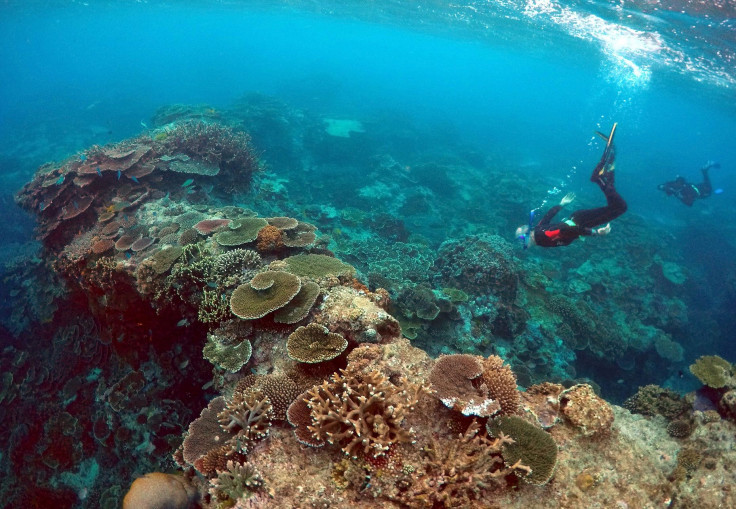Marine species face serious threat with Great Barrier Reef devastation

The devastation of the Great Barrier Reef in Australia, a World Heritage icon and one of the natural wonders of the world, spells big trouble for various marine animals. Species of fish, turtles, plus rare species of dolphins and dugong found in the reef’s waters face serious threat.
Global climate change has taken its toll on these marine species. An enormous part of the Great Barrier Reef was recently found to be dead, obliterated last year by overheated seawater, the New York Times reported.
Other sections around the middle of the reef have also been bleaching now. This could rob the reef of much of its colourful and rich marine life. The distressing condition was shared through social media by Terry P Hughes, director of a government-funded centre for coral reef studies at James Cook University in Australia, said the New York Times report.
Professor Hughes conducted aerial surveys (using low-flying planes and helicopters) of the bleaching on the Great Barrier Reef, uncovering that the northern sector showed severe damage. When he showed the results pinpointing the extent of the damage to his students, they were in tears.
Aggravating the natural causes and contributing to the alarming decline of marine ecosystems – including sharks and non-target marine species – are the non-stop shark mitigation measures. "Sharks are top predators that play an important role in the functioning of marine ecosystems, including the Great Barrier Reef," Human Society International (HSI) marine scientist Jessica Morris stated.
“The Great Barrier Reef is an internationally significant marine ecosystem," she continued. The effect of shark mitigation measures that are harmful to marine life, coupled with the cumulative impact of other practices occurring on the reef such as coral bleaching, overfishing, and run-off from land "require better management and conservation of marine species within the GBR Marine Park Authority," Morris said.
Morris lamented the Great Barrier Reef Marine Park Authority’s approval to continue the Queensland government's shark control program for another decade inside the World Heritage listed area. “The Great Barrier Reef is already suffering at the hands of climate change, marine plastics and overfishing, so we need to build its resilience and not take out important top predators,” she stated.
Other marine creatures that have been entrapped or killed by the Queensland shark control program are turtles. Over the course of the program, over 5,000 marine turtles have been captured in nets and on drumlines. Drumlines are further damaging the marine environment and reducing the resilience of the ecosystem, HSI Australia said in a statement.
I showed the results of aerial surveys of #bleaching on the #GreatBarrierReef to my students, And then we wept. pic.twitter.com/bry5cMmzdn
— Terry Hughes (@ProfTerryHughes) April 19, 2016
Source: Facebook/Human Society International Australia




















